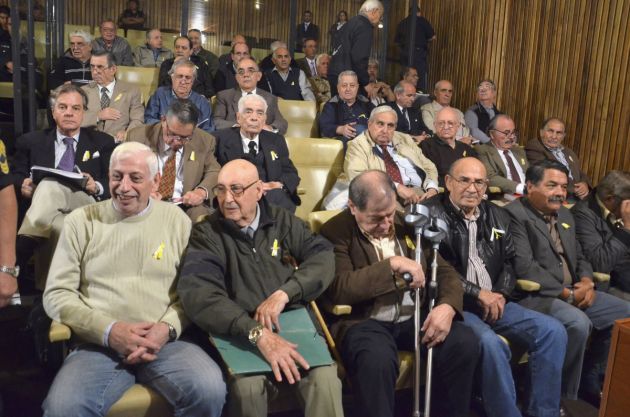Vatican rebuts accusations about new Pope during 'dirty war'

The Vatican on Friday rebutted accusations concerning the conduct of Pope Francis 1 decades ago during the period of Argentine history often referred to as the Dirty War which allege that as a priest he did not do enough to halt atrocities.
Vatican press spokesman Rev. Federico Lombardi said, "The campaign against Bergoglio is well-known and dates back to many years ago," noting it was sustained by "antic-clerics".
READ MORE: Pope Francis' humble style an implicit criticism of Benedict's papacy?
Jorge Mario Bergoglio was a young priest in Argentine between 1973 and 1979 when many of the worst excesses of a campaign by the military dictatorship in fighting opposition to their way of ruling occurred.
These targeted perceived opponents, including left-wing clerics supporting liberation theology, some of whom were Jesuits like Bergoglio.
"It has been made by a publication that carries out sometimes slanderous and defamatory campaigns. The anticlerical cast of this campaign and of other accusations against Bergoglio is well-known and obvious," said Lombardi, who also belongs to the Jesuit order.
"The charges refer to the time before Jorge Mario Bergoglio became bishop [of Buenos Aires], when he was Provincial Superior of the Jesuits in Argentina and accuse him of not having protected two priests who were kidnapped."
During the whole period of military rule between nine thousand and 30,000 people disappeared or were eliminated, including 150 clerics.
Lombardi said, "This was never a concrete or credible accusation in his regard. He was questioned by an Argentinian court as someone aware of the situation but never as a defendant. He has, in documented form, denied any accusations."
Jon Lee Anderson wrote in the New Yorker on March 15 "Whatever the truth, Francis the Humble, it would seem, has much to clear up about what he thought, how he behaved, and what he did during his country's Dirty War. As with the role of the Church he has long served, it remains a mystery."
The papal spokesman on Friday asserted that there had been many declarations demonstrating what Bergoglio did to protect many people during the period of the military dictatorship.
"Bergoglio's role, once he became bishop, in promoting a request for forgiveness of the Church in Argentina for not having done enough at the time of the dictatorship is also well-known," said Lombardi.
"The accusations pertain to a use of historical-sociological analysis of the dictatorship period made years ago by anticlerical elements to attack the Church. They must be firmly rejected."
In a biography of Bergoglio by an Argentine journalist, Sergio Rubin, Bergoglio denied the allegation and described how he had worked behind the scenes to save the two men he was accused of not doing enough for from being killed.
Human rights activist and Nobel Peace Prize laureate, Adolfo Pérez Esquivel, defended Bergoglio in a BCC interview.
"There were bishops who were complicit, but not Bergoglio.
"I personally know many bishops who called on the military junta to free prisoners and priests and whose pleas were rejected," he said.